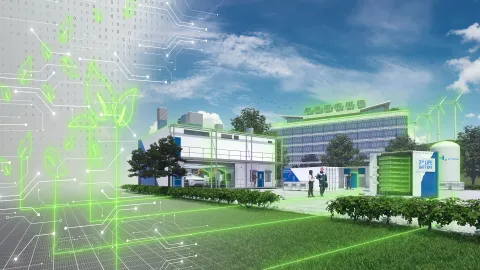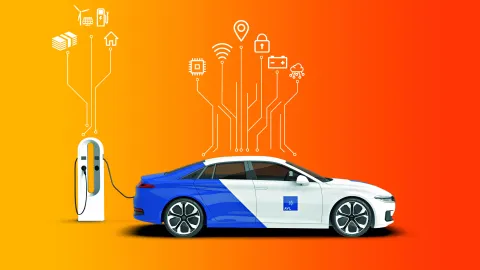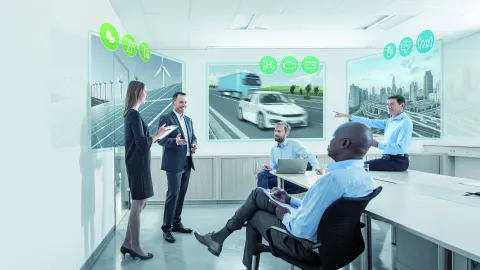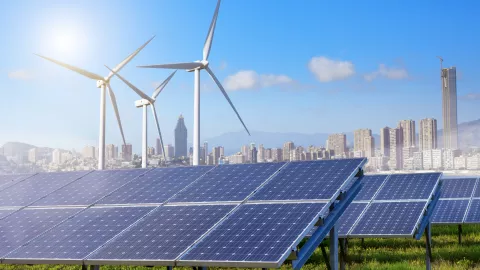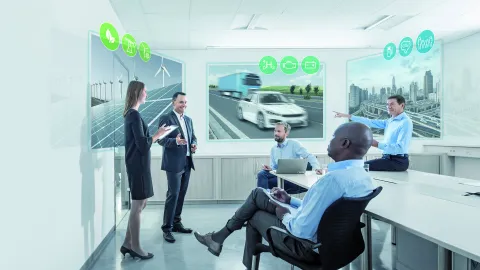We have always dedicated all efforts to an efficient energy conversion. Whether it is in the power generation, fuel production or the whole life cycle. Caring about economic use of energy has been our priority ever since.
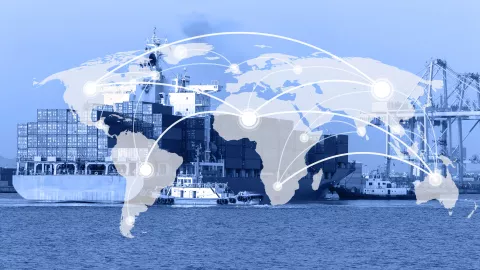
The future of automotive engineering is green and CO2-lean - at the same time economical feasibility remains a priority. This creates the need to develop a cross-sectoral mindset outside the core areas of powertrain and vehicle.
We provide independent studies and strategic advice on future energy and fuel pathways in the mobility sector as well as CO2 analysis and scenario simulations throughout the life cycle.

Hard-to-electrify sectors and industries as well as existing mobility fleets around the globe will need renewable hydrocarbon in the mid- and long-term. Using CO2 inputs from various sources like biomass or direct-air-capture synthetic fuels can be seen as CO2 neutral in the whole life cycle.
Our solutions start with analyzing the current status, evaluating the options for improvements up to real-life energy measurements and demo system set-up. Depending on the complexity of the task, simulations are based on AVL’s proven toolchain including dedicated and specific digital twin models.
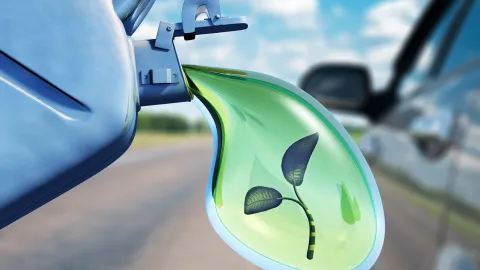
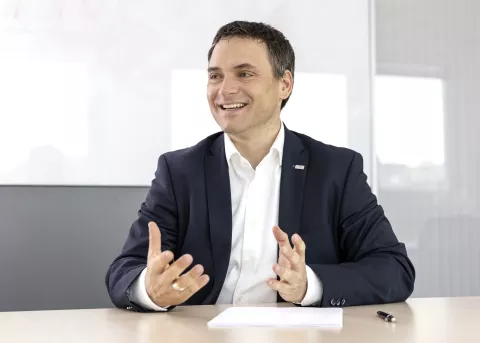
In the long term, avoiding CO2 emissions in a vehicle's life cycle will become the new target. The transport sector will increasingly compete for the limited renewable energy sources.
– Senior Product Manager Energy & Sustainability, AVL List GmbH
Show possible strategic pathways to net zero CO2
- Addressing key CO2 strategy elements from concept definition to implementation
Optimization of the CO2 footprint
- Identification of tangible measures for optimizing the production process based on AVL’s analysis
- Assessment of investments in CO2 reduction, including CO2 avoidance and opportunity costs
Support the implementation phase
- Delivering engineering solutions within given time and budget has been the core of our business for more than 70 years
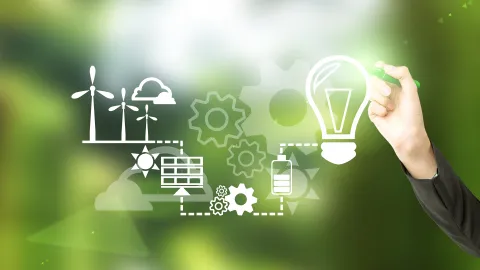
News
Moving steadily into the future: Find out what’s brand new in the field of energy ecoystem.


